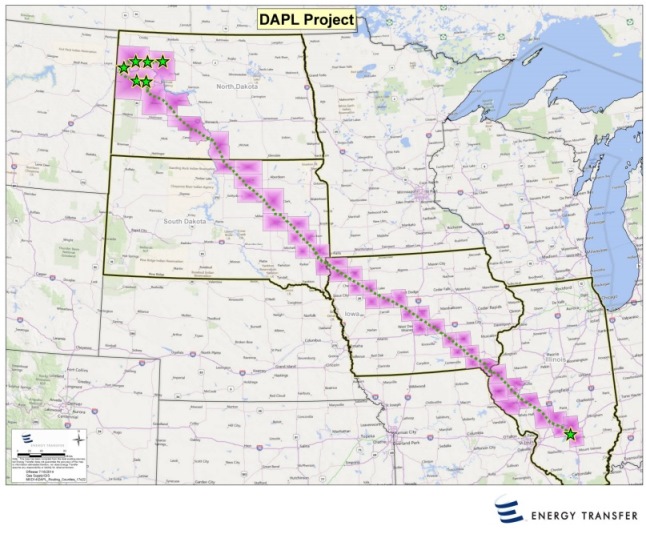Pipeline Delay Harms Rule of Law, Defers Public Good
Mark Green
Posted November 15, 2016
In view of the facts, law and established procedure, the government’s latest decision to keep delaying the Dakota Access Pipeline project in North Dakota may only be explained as politics triumphing over legal due process and the public good. Consider:
- The U.S. Army Corps of Engineers, which previously approved the project, said this week more analysis and discussion are needed – while concluding that its previous decisions followed legal requirements.
- Already 84 percent complete, Dakota Access doesn’t cross tribal lands. Over a two-year period the Corps consulted tribal and other stakeholders on more than 250 occasions.
- Much of the route along Lake Oahe is immediately adjacent to an existing natural gas pipeline built in 1982.
- The $3.78 billion project is expected to generate more than $150 million in sales and income taxes and $55 million annually in property taxes to four states while delivering 470,000 barrels of oil per day from the Bakken region to terminal facilities in Illinois.

It’s hard to see the use in more analysis and discussion. The pipeline project already is legally approved and permitted, having won the go-aheads from federal and state entities that are required under established procedure. A federal judge reviewed the facts and ruled construction could proceed in September. Instead, the Obama administration’s intervention has put the project on indefinite hold – a clear departure from the rule of law that not only impacts the pipeline and its construction workers, but also all types of future infrastructure. API Midstream Group Director Robin Rorick:
“It defies logic that the Obama administration would ignore the rule of law by unilaterally delaying this critical infrastructure that would create American jobs and benefit American consumers. This project went through an established, open and transparent permitting process where comments from numerous stakeholders were considered. The administration’s actions to further delay this project with no legal justification contradict multiple court rulings; set a dangerous precedent for other infrastructure projects including roads, bridges and electricity transmission lines; and ignore calls to uphold the rule of law by the governors of North Dakota, South Dakota and Iowa.”
Kelcy Warren, CEO of Energy Transfer Partners, the pipeline’s builder:
“This action is motivated purely by politics at the expense of a company that has done nothing but play by the rules it was given. To propose, as the Corps now does, to further delay this pipeline and to engage in what can only be described as a sham process sends a frightening message about the rule of law.”
U.S. Sen. John Hoeven of North Dakota:
“The route has been altered 141 times to address sites of archaeological significance. The solution now is for the Corps to grant an easement for the project so that life can return to normal for our farmers, ranchers, tribal members and law enforcement officers, who have worked very hard to protect the lives and property of all.”
Law is law, and it should be upheld, as the governors have urged. Indeed, as we’ve previously noted, the integrity of the rule of law is at stake in the Dakota Access case. We’ve also posted on the plight of construction workers whose livelihoods have been threatened by protests that have kept them from their jobs, as well as impacts on members of the local community.
Displacing the primacy of the rule of law and established order to placate a protest lacking in factual merit is a harmful precedent. Approved energy infrastructure everywhere could be subject to disruption and indefinite delay – delaying the benefits of needed infrastructure to the nation as a whole. Rorick:
“Modernizing our infrastructure helps move energy our nation demands more efficiently, helps save consumers money, and provides tens of thousands of well-paying jobs. It’s unfortunate that the Obama administration would turn its back on its own citizens and put politics over sound public policy. I hope the administration reconsiders today’s action for the good of our nation’s energy future.”
About The Author
Mark Green joined API after a career in newspaper journalism, including 16 years as national editorial writer for The Oklahoman in the paper’s Washington bureau. Previously, Mark was a reporter, copy editor and sports editor at an assortment of newspapers. He earned his journalism degree from the University of Oklahoma and master’s in journalism and public affairs from American University. He and his wife Pamela have two grown children and six grandchildren.


